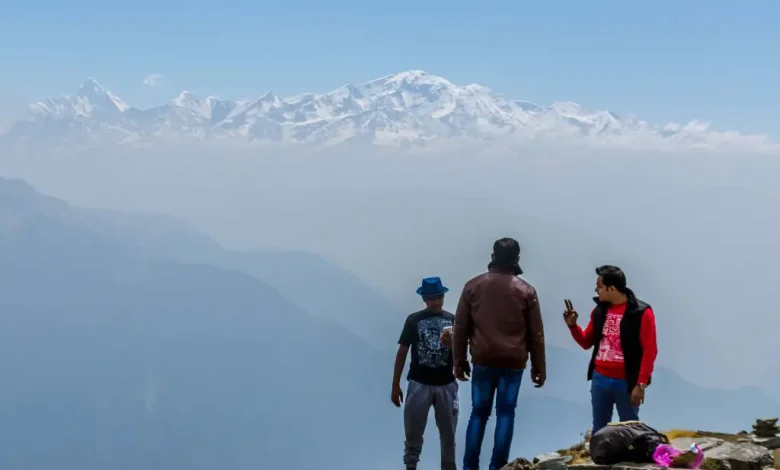The Ultimate Guide to Travel: Exploring the World with Purpose

Travel is more than just moving from one place to another; it is about discovery, connection, and creating meaningful memories. Whether you are planning a short weekend break or an extended journey abroad, understanding how to travel effectively can transform the experience from ordinary to extraordinary. In this guide, we will explore essential aspects of travel, from preparation and budgeting to cultural immersion and sustainable tourism, helping you embrace every journey with confidence.
Why Travel Matters
Travelling allows individuals to step outside their routines and immerse themselves in new environments. It helps broaden perspectives, enhances cultural awareness, and provides unique opportunities for personal growth. By exploring the world, people learn to appreciate diversity and understand the shared human experience that connects us all.
-
Cultural Enrichment: Exposure to different traditions, languages, and lifestyles.
-
Personal Growth: Overcoming challenges that build confidence and resilience.
-
Memorable Experiences: Creating stories that last a lifetime.
-
Connection: Meeting new people and strengthening bonds with companions.
Planning Your Trip Effectively
Choosing the Right Destination
Selecting a destination involves more than just picking a spot on the map. Consider factors such as climate, culture, safety, accessibility, and personal interests. For example, nature lovers might prefer mountain retreats, while history enthusiasts may choose cities rich in heritage.
Setting a Budget
Budgeting is the foundation of a successful trip. Always account for:
-
Transport (flights, trains, buses, car hire)
-
Accommodation
-
Meals and dining
-
Activities, tours, and entry tickets
-
Emergency funds for unforeseen expenses
Using travel apps and comparison websites can help identify affordable options without compromising comfort.
Creating a Flexible Itinerary
An itinerary provides structure, but flexibility is key to enjoyment. Plan major highlights while leaving room for spontaneous experiences. Over-scheduling can lead to exhaustion, while under-planning risks missing important opportunities.
Modes of Travel
Air Travel
Airplanes are the fastest way to reach international destinations. Booking in advance often secures the best deals, while considering luggage policies and stopovers can prevent unnecessary stress.
Train Journeys
Train travel offers scenic routes, particularly across Europe and Asia. It provides comfort, freedom of movement, and opportunities to interact with locals.
Road Trips
Driving allows complete freedom of exploration. This is ideal for travellers who enjoy detours, small towns, and hidden landscapes along the way.
Cruises
Cruising is perfect for those who prefer comfort combined with multiple destinations. With all-inclusive packages, travellers enjoy convenience while exploring different ports.
Embracing Local Culture
Learning the Language
Even basic phrases in the local language demonstrate respect and help build connections with residents. A simple “hello” or “thank you” often goes a long way.
Respecting Traditions
Understanding and respecting cultural customs is vital. For example, appropriate dress codes for religious sites or local etiquette for dining reflect cultural sensitivity.
Trying Local Cuisine
Food is a gateway to understanding culture. Sampling regional dishes not only pleases the palate but also supports local businesses.
Sustainable Travel Practices
Travellers have a responsibility to protect the environment and respect local communities. Adopting sustainable practices ensures destinations remain beautiful for future generations.
-
Choose eco-friendly accommodation.
-
Reduce plastic usage by carrying reusable bottles and bags.
-
Support local artisans and businesses instead of mass-produced souvenirs.
-
Use public transport where possible to cut down carbon footprints.
Health and Safety Considerations
Maintaining health and safety while travelling ensures peace of mind. Key tips include:
-
Carrying essential medications and first aid supplies.
-
Purchasing comprehensive travel insurance.
-
Staying informed about local health advisories and vaccinations.
-
Keeping copies of important documents in both digital and physical formats.
Technology in Modern Travel
Technology has revolutionised the travel experience. From online booking to real-time maps and language translation apps, travellers now have greater convenience and control. Mobile banking, digital boarding passes, and travel blogs make journeys smoother and more informed.
Travel for Different Purposes
Adventure Travel
For thrill-seekers, adventure travel includes hiking, diving, skiing, and other adrenaline-filled activities. Safety and proper gear should always be prioritised.
Family Travel
Travelling with family requires careful planning to ensure comfort and entertainment for all age groups. Family-friendly resorts and activities keep everyone engaged.
Solo Travel
Travelling alone builds independence and allows complete freedom of choice. Safety precautions and staying connected with loved ones are crucial for solo adventurers.
Business Travel
Efficient time management, comfortable accommodation, and reliable connectivity are priorities for professionals on work-related trips.
FAQs about Travel
How can I save money while travelling?
Book flights and accommodation in advance, travel during off-peak seasons, and use public transportation. Exploring free attractions such as parks, local markets, and cultural festivals can also reduce costs.
What are the best ways to avoid travel fatigue?
Pace yourself by not overloading the itinerary. Stay hydrated, take regular breaks, and allow time for rest to recharge both physically and mentally.
How do I handle language barriers in foreign countries?
Use translation apps, carry a phrasebook, or learn a few key words before your trip. Non-verbal communication, such as gestures and body language, is also effective.
Is travel insurance really necessary?
Yes, travel insurance protects against unexpected events such as medical emergencies, flight cancellations, or lost luggage. It provides financial and emotional security during your journey.
How can I travel more sustainably?
Choose environmentally friendly accommodation, avoid single-use plastics, and prioritise experiences that benefit local communities. Walking, cycling, and public transport are excellent eco-conscious choices.



